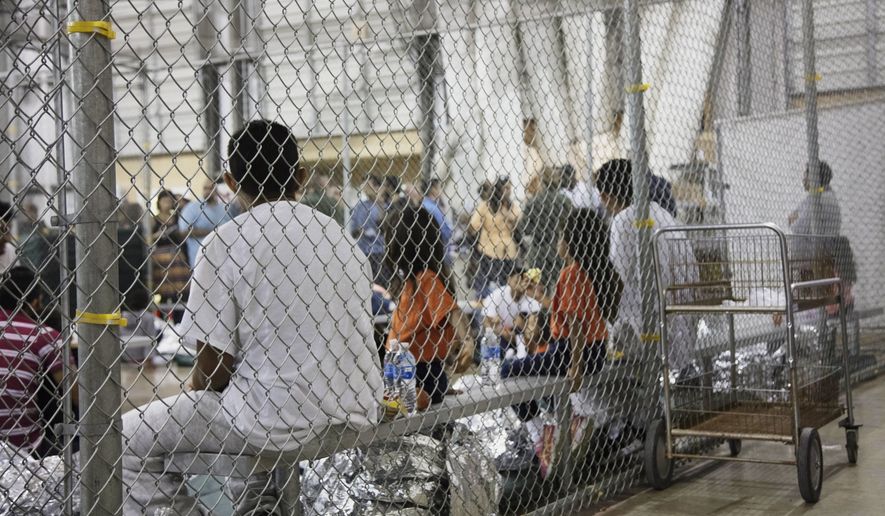The Supreme Court delivered an affirmation of the government’s system of detaining illegal immigrants, ruling Monday in two cases against migrants who’d sought the ability to be released while they fought their removal proceedings.
The justices shot down a class action ruling out of California that had granted noncitizens the right to a bond hearing to be released from detention, and also overturned another lower court decision in Pennsylvania that said the law requires the government to grant bond hearings.
In the California case, Justice Samuel A. Alito Jr., writing the majority opinion, said the courts “exceeded their jurisdiction” by issuing an injunction requiring bond be made available for an entire class of migrants held in detention.
And in the case out of Pennsylvania, Justice Sonia Sotomayor said lower courts were creating a new right of a bond hearing for migrants where one didn’t exist in the law Congress wrote.
The high court left weighty constitutional issues of detention for another day, but in both cases, the justices said at least as far as the law is concerned, Congress did give the administration wide-ranging powers to detain people while they are awaiting deportation.
That’s an affirmation for the government, which has defended its detention powers, and a blow to immigrant-rights advocates who are trying to unwind the immigration detention system as much as possible, saying it allows for abuse and neglect of those snared in immigration violations.
SEE ALSO: Border control advocates want Americans to snitch on ICE’s immigration flights
“The Supreme Court has turned its back on its prior interpretation of the statute, which required a custody determination after six months,” said Matt Adams, legal director of the Northwest Immigrant Rights Project, which argued on behalf of the migrant in the Pennsylvania case.
“To now find that the statute allows for indefinite detention is contrary to a fundamental principle upon which our system was founded — that government officials may not lock up a person without at least providing them their day in court to contest whether their confinement is justified,” Mr. Adams said.
But the Immigration Reform Law Institute, which advocates for stricter controls on immigration, said those in custody can leave detention at any time — by returning to their home countries.
“The United States is not holding them prisoner against their will. Rather, it is allowing them to remain in the United States while they challenge their deportation in the courts, and setting the conditions for their remaining here,” said Dale Wilcox, executive director of the institute. “If they don’t like those conditions, they can always leave detention and return to their native land.”
Detention is at the heart of immigration policy debates.
When illegal immigrants are detained, they can easily be deported at the end of their cases. But when illegal immigrants are released while their cases are pending, the chances of ever being deported drop dramatically.
Congress hasn’t allocated enough detention bed space for U.S. Immigration and Customs Enforcement to detain the more than 1 million migrants currently in deportation proceedings, so decisions about whom to detain can be tricky.
Things get even more complicated when it comes to deporting people to countries that don’t cooperate in taking them back. In a major Supreme Court ruling from 2001, known as the Zadvydas case, the justices created a general six-month limit on immigration detention, saying otherwise there was a chance someone might be detained indefinitely.
Monday’s cases seemed to narrow the Zadvydas ruling, saying that there’s nothing in the law that prevents detention. But the justices said they didn’t take a position on the bigger constitutional issues of longer-term detention, and said migrants are free to argue that matter in the lower courts.
Justice Clarence Thomas, writing a concurring opinion in the Pennsylvania case, said the high court should rip off the bandage and overrule Zadvydas altogether.
“We will be forced to engage in this jurisprudential whack-a-mole until we recognize that Zadvydas was wrong the day it was decided,” Justice Thomas wrote.
• Stephen Dinan can be reached at sdinan@washingtontimes.com.




Please read our comment policy before commenting.